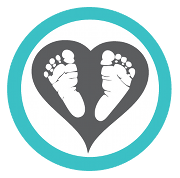
 Before the baby comes...
Before the baby comes...Many people choose a vegetarian eating plan and they may worry about their protein intake during pregnancy. Whether or not you consider yourself "strict vegetarian" or if you just prefer to limit your intake of animal products, it is important to evaluate your diet for optimal health. There are different forms of vegetarian diet, including:
- Vegan - no flesh foods (red meat, poultry, fish), milk products or eggs.
- Ovo-lacto vegetarian - no flesh foods but milk products and eggs are allowed.
- Ovo vegetarian - no flesh foods or milk products, but eggs are allowed.
- Lacto vegetarian - no flesh foods or eggs, but milk products are allowed.
In general, vegetarian eating lowers the risk of the following conditions:
- Obesity
- Tooth decay due to typically eating less junk food (this is up to you)
- Hypertension
- Constipation
- Heart disease
- Type 2 diabetes
- Cancer
- Gallstones
Other resources:
American Dietetic Association
Vegetarian Society
Your Health (addresses DHA, omega 3 needs)
Vegetarian Resource Group
After the baby comes...
If you want your baby to eat the vegetarian way, it is important to plan ahead to be sure he/she won't be nutritionally deficient. Discuss your plans with your pediatrician. A breastfed baby receives all the nutrients needed for the first six months of life. Sometimes a vitamin D supplement (200 IU) is recommended for the baby. This is the sunshine vitamin and sometimes we don't get enough daily sun to do the job. Vegetarian breastfeeding moms may also consider a B12 supplement. You can get more information on breastfeeding at LaLeche League International.
Baby eats veggies...
When it comes to feeding your baby solid foods, around six months of age, the Vegetarian Society also has an information sheet for baby here. You may find that getting involved in a support network of vegetarian moms will be helpful as you learn to create healthy baby foods and child-friendly vegetarian meals. Gerber reminds us that "vegetable proteins are sometimes more difficult for your baby to digest and absorb than animal proteins. Be sure to fully cook beans and legumes. This allows for proper digestion of proteins by your baby." (Source: Teddy Bears & Bean Sprouts publication, 2004 Gerber Products Company). Variety will help your baby to enjoy solid foods.
You might enjoy reading some other vegetarian mom blogs
Vegan Mom Blog
Non Vegetarian Mom/Vegan Baby
Vegetarian Baby
Homemade Baby Food (Veggie)
Green Baby Guide
Vetetarian Mom Blog
Pregnancy & Baby
























Thanks, Veronica. Glad you like it.
ReplyDelete